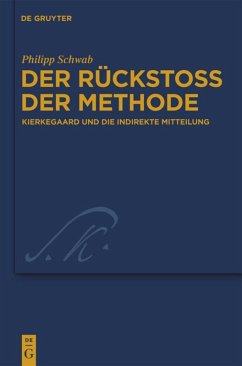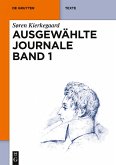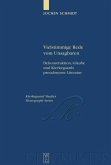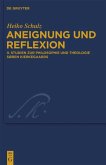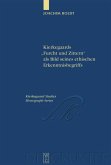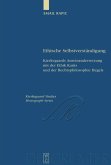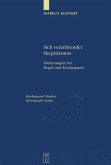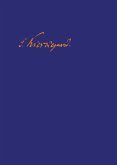This study is the first comprehensive presentation of Kierkegaardâ??s method of an indirect communication from a philosophical perspective. The indirect communication is described as Kierkegaardâ??s method of thinking. Indirect communication not only represents a form of broken communication but also a theory on the limits of language and concept and a counterconcept to the systematically hermetic form. Here Kierkegaardâ??s place in history becomes evident in the constellation of change of post-idealism. In total, he emancipates himself from Schellingâ??s and Hegelâ??s systematic form and already points the way to Nietzsche and Derrida.
Die vorliegende Studie ist die erste umfassende Darstellung, die Kierkegaards Verfahren einer indirekten Mitteilung als hermeneutischen Schlüssel zu seinem Gesamtwerk entfaltet. Erkenntnisleitend ist das philosophische Interesse, die indirekte Mitteilung als Kierkegaards denkerische Methode und als das bestimmende Strukturprinzip seiner Existenzphilosophie zu begreifen. Indirekte Mitteilung meint nicht bloß eine äußerliche Form maieutischer und existenzieller Kommunikation, sie ist vielmehr zugleich eine Theorie über die Grenze von Sprache und Begriff. Zudem ist die perspektivisch gebrochene, experimentalphilosophische Methode ein Gegenentwurf zur geschlossenen Form des Systems. Hierin zeigt sich Kierkegaards geschichtliche Zwischenstellung in der Umbruchskonstellation von Idealismus und Moderne: Er stößt sich im Ganzen vom Systemdenken Schellings und Hegels ab und weist voraus auf die Experimentalphilosophie Nietzsches und das Differenzdenken Derridas.
Die Studie ist in dreierlei Hinsicht strukturiert: Systematisch wird die indirekte Methode als ein gegen sich selbst arbeitendes, prinzipiell unabgeschlossenes Verfahren bestimmt; geschichtlich wird sie vor dem Hintergrund der Tradition der Ironie und weiterer paradoxaler Begriffskonstellationen entfaltet; werkgeschichtlich-exegetisch werden Kierkegaards weit verzweigte Reflexionen über den Begriff der indirekten Methode rekonstruiert, ihre Praxis und Durchführung anhand ausgewählter Werke exemplarisch herausgearbeitet.
Die vorliegende Studie ist die erste umfassende Darstellung, die Kierkegaards Verfahren einer indirekten Mitteilung als hermeneutischen Schlüssel zu seinem Gesamtwerk entfaltet. Erkenntnisleitend ist das philosophische Interesse, die indirekte Mitteilung als Kierkegaards denkerische Methode und als das bestimmende Strukturprinzip seiner Existenzphilosophie zu begreifen. Indirekte Mitteilung meint nicht bloß eine äußerliche Form maieutischer und existenzieller Kommunikation, sie ist vielmehr zugleich eine Theorie über die Grenze von Sprache und Begriff. Zudem ist die perspektivisch gebrochene, experimentalphilosophische Methode ein Gegenentwurf zur geschlossenen Form des Systems. Hierin zeigt sich Kierkegaards geschichtliche Zwischenstellung in der Umbruchskonstellation von Idealismus und Moderne: Er stößt sich im Ganzen vom Systemdenken Schellings und Hegels ab und weist voraus auf die Experimentalphilosophie Nietzsches und das Differenzdenken Derridas.
Die Studie ist in dreierlei Hinsicht strukturiert: Systematisch wird die indirekte Methode als ein gegen sich selbst arbeitendes, prinzipiell unabgeschlossenes Verfahren bestimmt; geschichtlich wird sie vor dem Hintergrund der Tradition der Ironie und weiterer paradoxaler Begriffskonstellationen entfaltet; werkgeschichtlich-exegetisch werden Kierkegaards weit verzweigte Reflexionen über den Begriff der indirekten Methode rekonstruiert, ihre Praxis und Durchführung anhand ausgewählter Werke exemplarisch herausgearbeitet.
